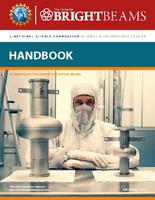Team science is the collaborative effort to address a scientific challenge that leverages the strengths and expertise of professionals trained in different fields. This guide will point you to essential resources to improve your knowledge and practice of collaborative research, and, more importantly, team science.
Virginia Tech Course Highlight
Team Science, Cooperation, and Interdisciplinary Work (ALCE 5224)
An online, asynchronous graduate course (see description) offered each Spring semester. In the future, an in-person course may be offered during Fall semesters. Contact Professor Eric Kaufman (ekk@vt.edu) for more information.
Virginia Tech Training Highlight
2023-2024 Team Science Training Workshop Series
Establishing and maintaining an effective research team is a difficult challenge as research addresses complex problems and spans disciplines, societal sectors, communities, and institutions. To support Virginia Tech faculty members’ capacity to engage in and lead successful cross-disciplinary teams, the Institute for Society, Culture, and Environment (ISCE) and its Whole Health Consortium, and +Policy Network offered a three-part workshop series on team science fundamentals. This workshop series was provided by Dr. Shalini Misra, Associate Professor, Urban Affairs and Planning. Workshop full description, recordings, and materials.
NCI's Team Science Toolkit
-
National Cancer Institute's Team Science ToolkitThe Team Science Toolkit is a collection of information and resources that support the practice and study of team science. The Toolkit connects professionals from many disciplines, providing a forum for sharing knowledge and tools to maximize the efficiency and effectiveness of team science initiatives.
A growing body of knowledge about team science is emerging from disciplines as diverse as public health, communications, management sciences, and psychology. The Team Science Toolkit aims to integrate this knowledge, disseminate effective practices, and prevent the unnecessary duplication of efforts.
Team Science Books
-
Collaboration and Team Science: A Field Guide by
Publication Date: May 2018For nearly a decade, the Field Guide has served as a valuable resource for: Scientists participating in or leading a research team; Researchers becoming involved in or building a research team; Graduate courses and programs designed to focus on or integrate team science and interdisciplinary research into their learning and using it as a base text; Faculty development offices who have provided it to faculty to enhance their understanding of working collaboratively and for their professional growth. -
Enhancing the Effectiveness of Team Science by
ISBN: 9780309316828Publication Date: 2015-08-15The past half-century has witnessed a dramatic increase in the scale and complexity of scientific research. The growing scale of science has been accompanied by a shift toward collaborative research, referred to as "team science." Scientific research is increasingly conducted by small teams and larger groups rather than individual investigators, but the challenges of collaboration can slow these teams' progress in achieving their scientific goals. How does a team-based approach work, and how can universities and research institutions support teams? -
Strategies for Team Science Success by
ISBN: 9783030209902Publication Date: 2019-11-26Collaborations that integrate diverse perspectives are critical to addressing many of our complex scientific and societal problems. Yet those engaged in cross-disciplinary team science often face institutional barriers and collaborative challenges. Strategies for Team Science Success offers readers a comprehensive set of actionable strategies for reducing barriers and overcoming challenges and includes practical guidance for how to implement effective team science practices. -
 Center for Bright Beams Handbook
by
Publication Date: 2019-05-01The Center for Bright Beams Handbook provides team science guidance and best practices for operating in a trans- and multi- disciplinary research environment.
Center for Bright Beams Handbook
by
Publication Date: 2019-05-01The Center for Bright Beams Handbook provides team science guidance and best practices for operating in a trans- and multi- disciplinary research environment.
Journal Articles to get you started quickly
-
Collaboration and Team Science: From Theory to PracticeBennett, L. M., & Gadlin, H. (2012). Collaboration and team science: from theory to practice. Journal of Investigative Medicine : The Official Publication of the American Federation for Clinical Research, 60(5), 768-75.
-
Moving the Science of Team Science Forward: Collaboration and CreativityHall, K. L., Feng, A. X., Moser, R. P., Stokols, D., & Taylor, B. K. (2008). Moving the science of team science forward: collaboration and creativity. American journal of preventive medicine, 35(2 Suppl), S243–S249. doi:10.1016/j.amepre.2008.05.007
-
Interdisciplinarity as teamwork—How the science of teams can inform team science.Fiore, S. M. (2008). Interdisciplinarity as Teamwork How the Science of Teams Can Inform Team Science. Small Group Research, 39(3), 251–277. https://doi.org/10.1177/1046496408317797
-
The science of team science: overview of the field and introduction to the supplement.
 Stokols, D., Hall, K.L., Taylor, B.K., and Moser, R.P. (2008). The Science of team science: Overview of the field and introduction to the supplement. American Journal of Preventive Medicine 35, S77–S89.
Stokols, D., Hall, K.L., Taylor, B.K., and Moser, R.P. (2008). The Science of team science: Overview of the field and introduction to the supplement. American Journal of Preventive Medicine 35, S77–S89.
Characteristics of High Performing Research Teams
What are some characteristics of high-performing teams?
- Effective leadership and management skills
- Self and other-awareness
- Trust established among members
- Strategies for communicating openly
- Effective building of team
- Created, shared and revisited a shared vision
- Provisions for recognition and credit
- Disagreements while containing conflict
- Learned each other’s languages
- Fun and enjoy the work together
Source: Bennett, L. M., & Gadlin, H. (2012). Collaboration and team science: from theory to practice. Journal of investigative medicine : the official publication of the American Federation for Clinical Research, 60(5), 768-75.
Team Science Training
-
COALESCE Teamscience.netOnline learning modules to teach you about performing interdisciplinary and transdisciplinary research.



